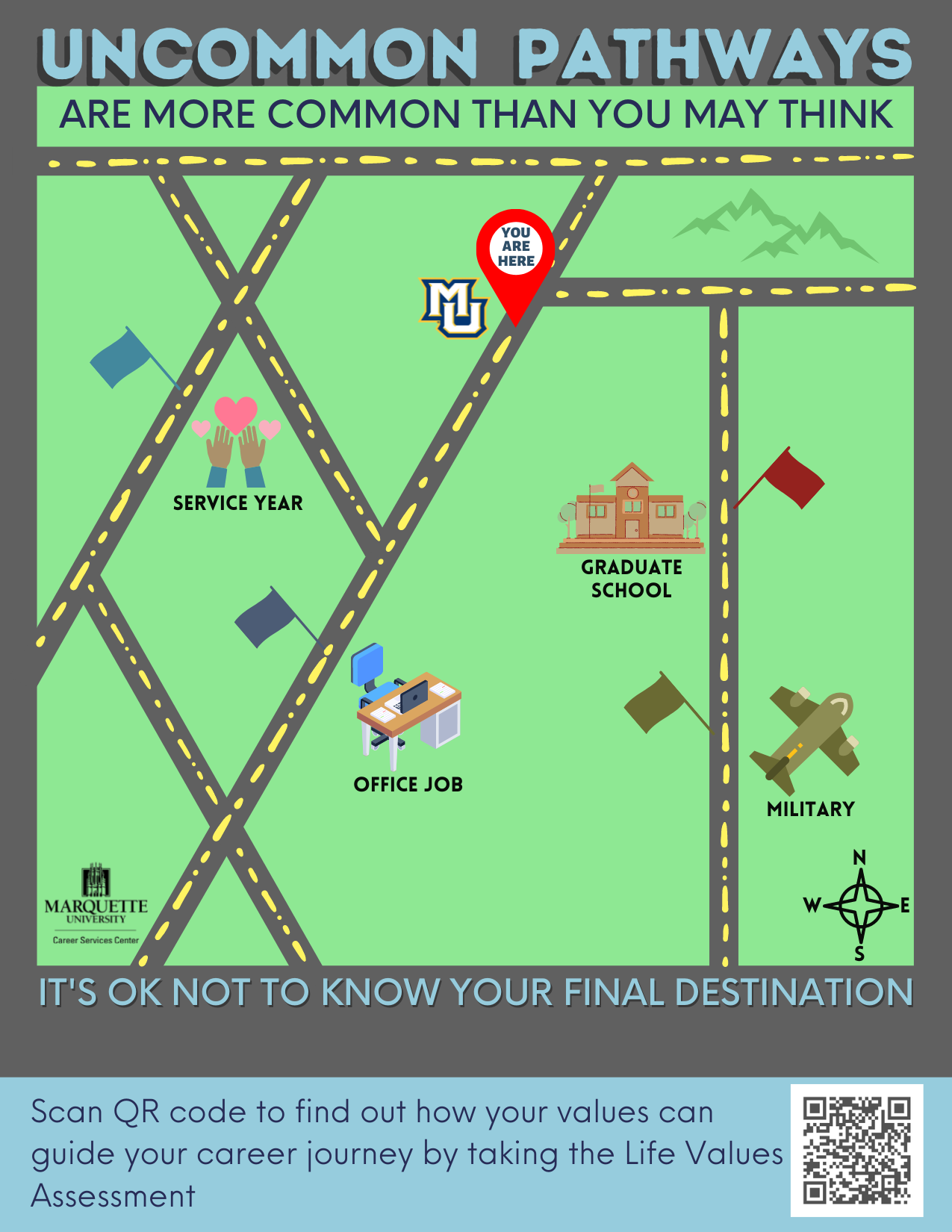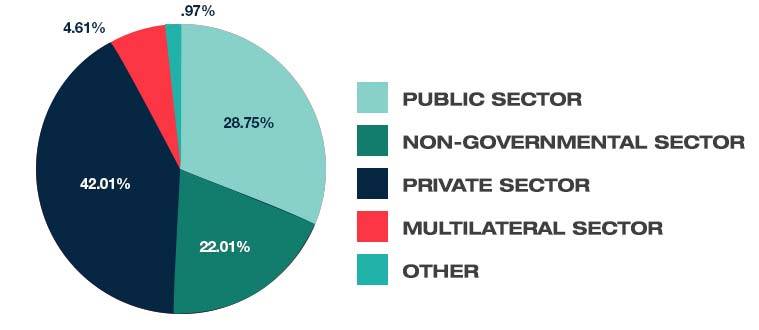
"Finding the interstitial connective tissue between disciplines is our strength. We see connections where others don't look. I believe that there is a specific type of person who finds an interest in this space in-between. My fellow INIA majors astound me as diverse, thoughtful scholars with a will to excel and explore."
- Lindita Hajdari, INIA '18


Work? Gap Year? Service Year? Grad School?
An interdisciplinary degree in the field of International Affairs allows candidates to pursue positions in public, private, non-governmental, and multi-lateral sectors. With literally hundreds, if not thousands, of employers in the field of International Affairs, the path forward can be overwhelming.
Dedicate one hour to each of these action-items:
-
- Watch these videos:
- Do a mock interview at the Career Services Center.
- After establishing a profile on LinkedIn, click on and connect with the INIA alumni whose names are hyperlinked throughout this INIA website (the INIA home page, this Transitioning Seniors page, and What Our Students Say page).
- Create an e-portfolio to showcase the highlights of your academic career. Use Canva (templates are available) to show your work the way you want it to be seen. An e-portfolio can contain all or some of the following:
-
- Files of various formats (text, pictures, video, etc.)
- Evidence related to courses taken, programs of study, etc.
- Writing samples (which might include several drafts to show development and improvement)
- Projects prepared for class or extracurricular activities
- Evidence of creativity and performance
- Evidence of extracurricular or co-curricular activities, including examples of leadership
- Evaluations, analysis and recommendations
- The American Association of Colleges and Universities recent paper titled: It Takes More than a Major: Employer Priorities for College Learning and Student Success states that “more than 4 in 5 employers say an electronic portfolio would be useful to them in ensuring that job applicants have the knowledge and skills they need to succeed in their company or organization.” (Read the entire report online.)
- Discuss the pros and cons of immediate employment, military service, a gap year, grad school or a service year with your advisor, a CSC counselor, and your family.
- If pursuing grad school, identify the application cycle for graduate schools.
-
Who Employs International Affairs Majors? According to a 2020 APSIA report, graduates found full-time positions in:

- Access your profile on the Marquette Career Network to help facilitate career-related conversations between you and the Marquette Network. This platform will give you an opportunity to seek knowledge and advice, explore career fields in which you are interested, and build your professional network with alumni around the world.
- Network with other INIA alumni via LinkedIn.
- Follow the INIA Alumni Facebook page for job postings and events.
- Visit Job Stories to hear from Marquette University alumni and Human Resources representatives on topics including college major selection; internship and job search strategies; a day-in-the-life; and skill development.
- Login to Handshake and use search terms specific to international affairs (e.g., global, trade, foreign, language, culture, security, defense, refugee, abroad, intercultural, non-violent, world-wide, international, etc).
- Expand the job search through additional CSC search engine links.
- Or, search exclusively on Global Jobs for entry-level positions in international affairs.
- Search jobs and internships on ConnexUs, a global network creating local impact.
- Prioritize a job where your skillset can expand and you can demonstrate your value. Focus on job opportunities where you can get your foot in the door and begin adding work experience to your resume. Don't get hung up on the name of the employer or the field in which you're working. Your dream job comes after you've developed a number of transferable skills and after you've demonstrated your value in the work world. Remember, the road forks many times.

Considering Graduate School or Law School?
If pursuing grad school or law school, start researching early to determine the particular strengths of programs, and schools that meet your interests for law, M.A., and Ph.D. programs. US News annual reviews and Peterson's Guides are helpful starting points.
For M.A. programs, see the Association of Professional Schools of International Affairs (APSIA).

Explore a Sample of NGOs and Governmental Agencies
NGO opportunities
US Government
Analysis/Consulting (Strategy/Security: Washington DC based)
Analysis/Consulting/Think Tanks
International Development
Human Rights
International Organizations
Volunteer work
Fellowships





